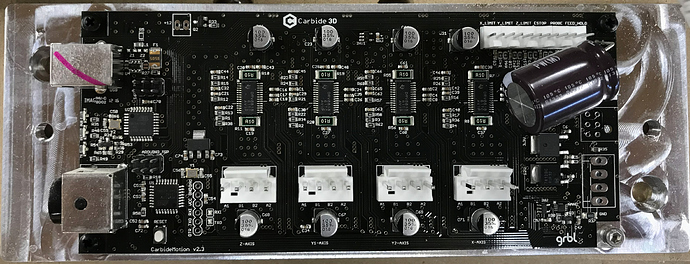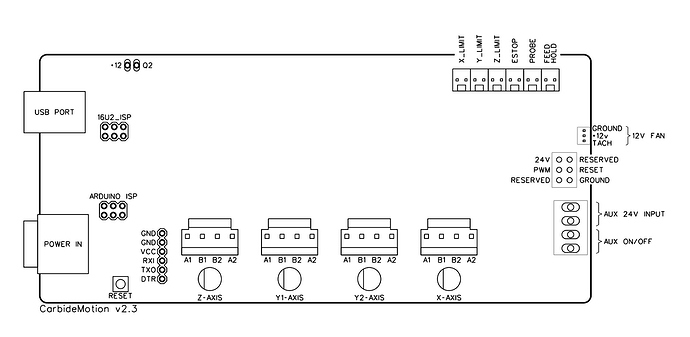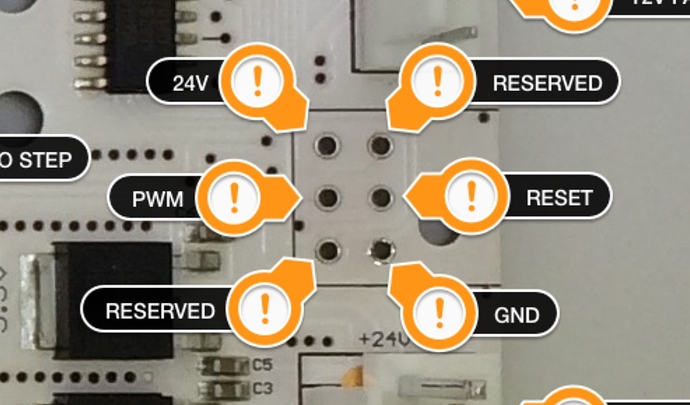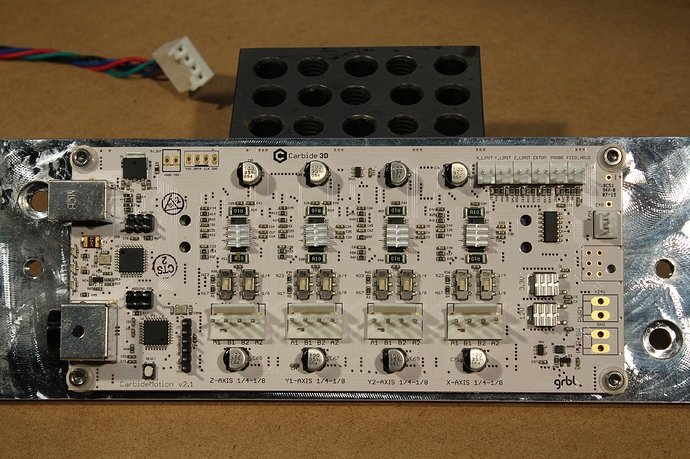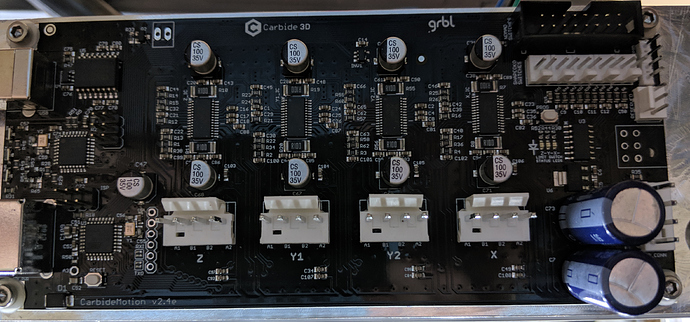What do you want to know? I’m going to repost your image here, just to make this as complete as I can.
“Q2” is not a pin, is the reference designator for the transistor next to that via - I will assume for the time being that via is GND. It appears that the output of this connector is switched (hence the transistor), but I don’t know by what. A3/Coolant would make sense, but I have not verified that.
The 2 ISP sockets are just like any arduino “ISP” socket. They look like this:
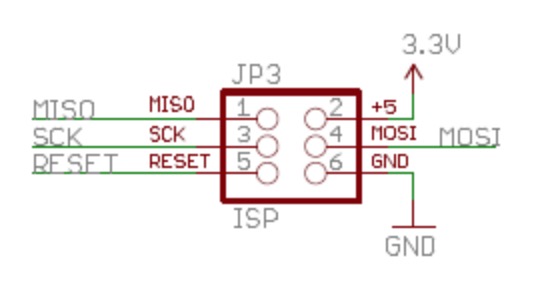
This one: “16U2_ISP" is for the USB interface. You probably don’t need to touch it ever.
This one: “ARDUINO_ISP” is for the atmega part doing all the work (ie. the “arduino”) - you shouldn’t need these pins as the part can be programmed via the USB interface.
The 6 pins on the right end of the board (same on all versions)…
The CPU is arranged on the board like this:
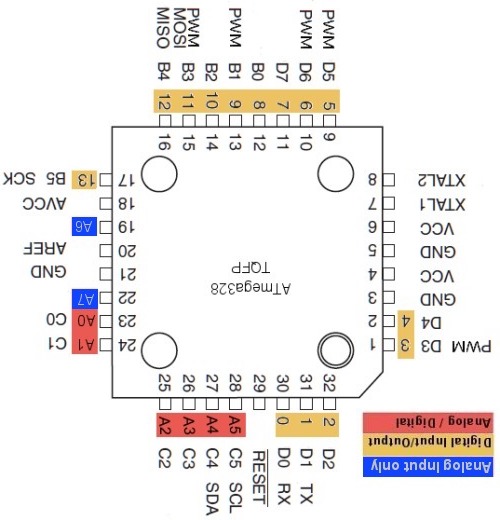
atmega328-tqfp-arduino-pinout.jpg500x520 56 KB
Pin1 is in the bottom right (there’s a dot in the plastic package)
Here’s a 2.1 board
Notable stuff:
The old boards have switches for microstepping. The new ones don’t.
This board has emergency stop pins.
Here’s a 2.4e (2.4d is the same)
- A3, which is coolant enable, has a via labeled “A3” over by the cpu (the atmega328 QFP toward the bottom of the board). I don’t know anyone doing gcode controlled coolant, so that’s interesting to be pulled out like that.
- The PWM output is nicely labeled on 2.4d/e. There are 4 pins above the spindle connector, labeled PWM, 5V, GND, and D13. D13 is spindle direction on GRBL 1.1
3.The 2 pins above the “spindle connector” are for an unneeded fan. The 4 pins below it are for aux 24v input power like on the white 2.1 board. - No emergency stop pins.
Does that help?
